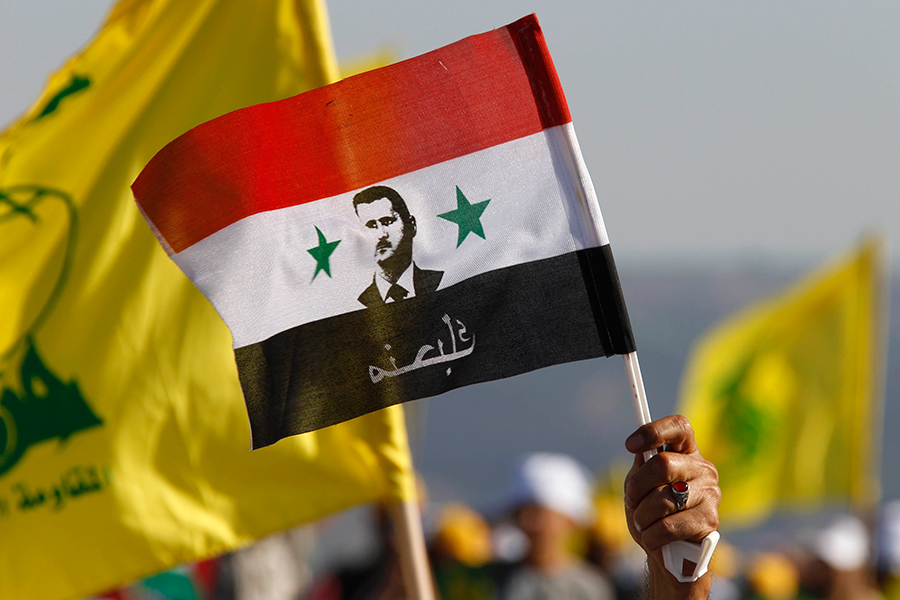
The relationship between the Syrian people and Hezbollah is deeply complex, marked by both shared solidarity with the Palestinian cause and intense resentment due to Hezbollah’s role in the Syrian conflict. This paradox of brotherhood and betrayal reveals the complicated layers of Middle Eastern geopolitics, where a movement once hailed as a symbol of resistance against Israel is now viewed by Syrians as a criminal occupier within their own borders.
Syrians have long sympathized with the plight of the Palestinian people, viewing the Israeli occupation as a shared regional grievance, particularly since they stood up against the Assad regime. They feel a sense of camaraderie with Palestinians, understanding their struggle through a lens of shared suffering and oppression. Syrians who have faced displacement, violence, and repression, draw parallels with the ongoing hardships in Gaza and the West Bank.
While Hezbollah’s rhetoric of resistance once resonated with many across the Arab world, including in Syria, its role in the Syrian revolution has drastically altered its image. Hezbollah’s active military intervention in Syria, fighting alongside the Assad regime, has led to widespread anger and hatred from their Syrian victims. Instead of being seen as a defender of the oppressed, Hezbollah is viewed as an extension of Iranian influence and a force of brutal suppression within their homeland.
Hezbollah’s involvement in sieges, such as in Qusayr and Madaya, and its participation in violent crackdowns on civilians, have left deep scars. The party’s previous status is tarnished in the eyes of Syrians who have suffered from its actions, seeing it as a sectarian militia advancing Iranian interests rather than defending the causes of the oppressed. Syrian writer and analyst, Bassam Youssef, wrote how Hezbollah has killed more Syrians than Israel has, and its hands are stained with the blood of the very people it claims to protect.
Many in the Syrian revolution view Hezbollah’s support for Palestine as insincere, accusing the group of exploiting the Palestinian cause for political gain. Former Lebanese MP Khaled Al-Zaher echoed this sentiment, stating that Hezbollah uses the Palestinian issue as a pretext to justify its actions in Lebanon and Syria. Al-Zaher pointed out that Hezbollah’s financial and military backing comes directly from Iran, positioning the group as a tool in a regional Iranian project rather than a genuine defender of Palestinian rights.
Hezbollah’s participation in the Syrian conflict cannot be viewed in isolation. As part of the larger “Axis of Resistance,” which includes Iran and Syria, Hezbollah is deeply involved in the regional power dynamics that have shaped the Middle East’s geopolitical landscape. However, the Assad regime’s recent silence and inaction in the face of escalating tensions between Israel and Hezbollah has raised questions about the Assad government’s loyalty to the Axis.
Reports indicate that the Assad regime is under pressure from both Israel and Russia to avoid direct involvement in the conflict between Israel and Hezbollah. Al-Zaher pointed out that Bashar al-Assad is seeking to preserve his regime by staying out of this war, distancing himself from the very militia that once relied on Syria’s support for its growth.
Hezbollah is a proxy militia advancing foreign interests at the expense of the Syrian people. The party’s role in the destruction of Syrian cities, displacement of populations, and its complicity and participation in the Assad regime’s crimes including massacres like Darayya where Hezbollah helped murder over 700 people, including 63 children, have left a lasting sense of betrayal among Syrians.
Hezbollah continues to act callously regarding the lives of Syria’s children. In June of this year, according to the Syrian Network for Human Rights (SNHR), Hezbollah was responsible for the deaths of 12 children of Syrian Druze in the occupied Golan heights, in a rocket attack on a crowded soccer pitch in Majdal Shams. Earlier this week, Hezbollah shelled a residential neighborhood in Taftanaz killing two, including a child and injuring eight.
Despite suffering continued attacks by Hezbollah in the name of the “resistance,” the Syrian people maintain a deep connection to the Palestinian cause, separating their solidarity with the people of Gaza and Palestine from their anger toward Hezbollah. This complex relationship highlights Middle Eastern politics’ intricate and often contradictory dynamics, where alliances shift, and the line between friend and foe can become blurred. In the eyes of many Syrians, Hezbollah’s actions have turned it from a symbol of resistance into an enemy and oppressor of the people it once claimed to defend.









